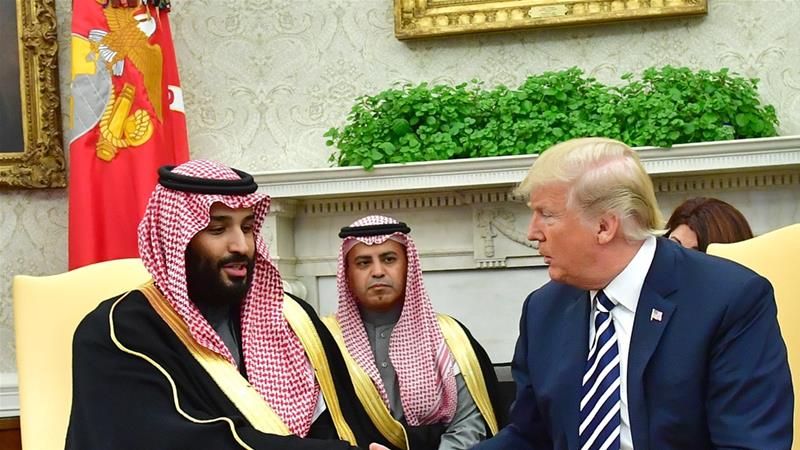News Analysis |
The United States’ Congressional Oversight and Reforms Committee is currently inquiring into the possibility of transfer of nuclear technology, in the form of nuclear power plants, to Saudi Arabia which could later enable the country to produce nuclear weapons of its own. The developments have come to the observation of House Committee after several “whistleblowers”, whose identity is kept anonymous yet, revealed White House’s plan of bypassing the Congress.
“The whistleblowers who came forward have warned of conflicts of interest among top White House advisers that could implicate federal criminal statutes,” Representative Elijah Cummings, the Democrat chairman of the committee, said in a February 19 letter to the White House. If went through, the plan would be a violation of U.S law which prohibits the transfer and spread of sensitive nuclear tech.
In such a scenario, if Saudi Arabia manages to get hold of nuclear technology, which could eventually result in the development of nuclear arsenal, the arms race in the Middle East would reach new heights.
IP3 consortium, a group of corporations excelling in nuclear power have been lobbying for permission to build a nuclear power plant in Jordan and Saudi Arabia. Thomas Barrack, a close friend of President Donald Trump has been active in proposing the plan on behalf of IP3 consortium since Trump took office back in 2016.
Another Potential “Blowback”
The pattern is strikingly like the U.S plans of equipping Iran with nuclear power during cold war days. It also started with the idea of allowing the U.S favorite Mohammed Raza Pahlavi, Iran’s ruler during those days, to build a nuclear power plant with the long-term plan of making Iran a nuclear state.
Read more: Saudi Arabia to build first nuclear research reactor
But with the rise of Islamists which culminated into the Iranian revolution, the idea was opposed afterward but by that time Iran requisite technology had been transferred which was enough to initiate the nuclear program at least. The Iranian revolution is the instance where the term “blowback” was originated and subsequently used by the CIA for plans going wrong.
Lawmakers inside the U.S Congress are not satisfied with the prospects of Saudi Arabia as a country under the leadership of Prince Mohammed Bin Salman. Incidents like the murder of journalist Jamal Khashoggi and waging war in Yemen under his watch has made the people sitting in the U.S houses wary of his attitude and ability to work under established global order. In such a scenario, if Saudi Arabia manages to get hold of nuclear technology, which could eventually result in the development of nuclear arsenal, the arms race in the Middle East would reach new heights.
Iran is in the position of making nuclear weapons because of the United States itself, and now to offset the balance, the U.S is mulling over an option has all the ingredients to turn into another blow-back.
A part of the reason why Trump administration and CIA are considering this option could be the fact that apart from economic sanctions, there is nothing much which the United States of America could do if Iran decides to build nuclear weapons. It is true that the United States enjoys clear military superiority over Iran in terms of technology and manpower, but the option has long been used if it was a viable one.
Military confrontation is an expensive possibility, especially after the failure in Iraq and Afghanistan, due to economic interests of Russia, China and even several allies of the United States of America such as India aligned with Iran. Therefore, apparently the thought process behind the idea of transfer of nuclear technology to Saudi Arabia to counterweigh Iran, which in several ways is a disastrous outcome for global peace and order.
Read more: Nuclear energy; Saudi Arabia’s coming Washington battle – James M. Dorsey
It is historically proven at many instances that U.S engineering between two potential rivals has not ended up well for both sides and global peace in general. Iran is in the position of making nuclear weapons because of the United States itself, and now to offset the balance, the U.S is mulling over an option has all the ingredients to turn into another blow-back.














